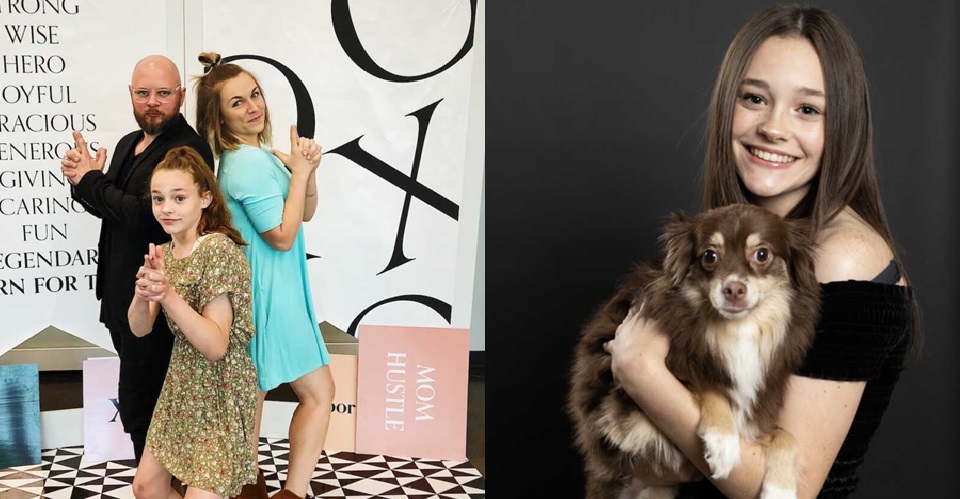They didn’t wait for the perfect plan; they said yes to a child and kept saying yes, until “ordinary” became a family. They met in their twenties over burgers and church music. Brandon worked at a new spot in Little Rock called Big Orange, and she kept coming back for the bacon-avocado burger and the tattooed guy with the easy smile. One Sunday before service, they bumped into each other and later realized they were leading worship at the same church. They traded jokes about SNL, swapped songs, quoted New Girl, and fell for the same artists. He asked her to coffee; seven months later, he proposed; five months after that, they were married.

Their first year was full: full-time jobs, weekends leading worship, volunteering with young adults. Adoption wasn’t their plan just yet, though she’d always pictured it someday. Brandon, adopted himself, hadn’t said much either way. On their first anniversary, they rode an elevator at a friend’s out-of-town wedding. A skinny nine-year-old with bright eyes and springy curls hopped in and called down the hall that she could just go with this couple. They had never met her.
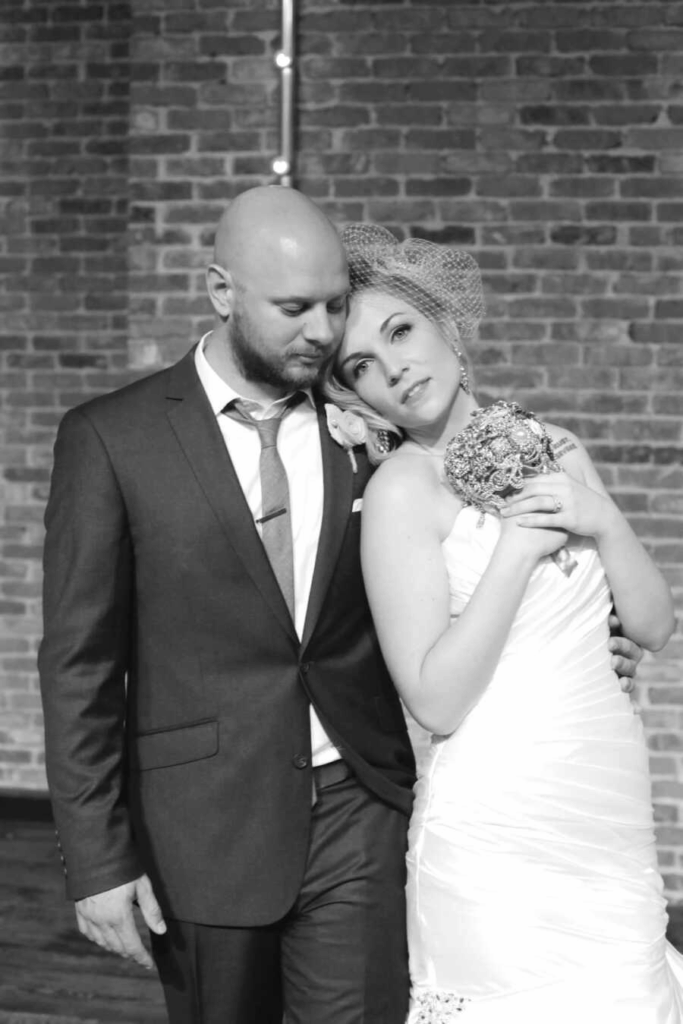
The caretaker related to the bride quickly led the child away, but the air in the elevator changed. In the car afterward, they sat in profound quiet. Out of pure joy, she texted her friend about how she watched the love of her life fall in love with adoption, too. The couple was told Jazmine was the youngest out of her siblings and looked forward to a forever home. Brandon finally said what both were thinking: either they help find her family, or they become it. Saying it out loud scared them, but it also settled something.
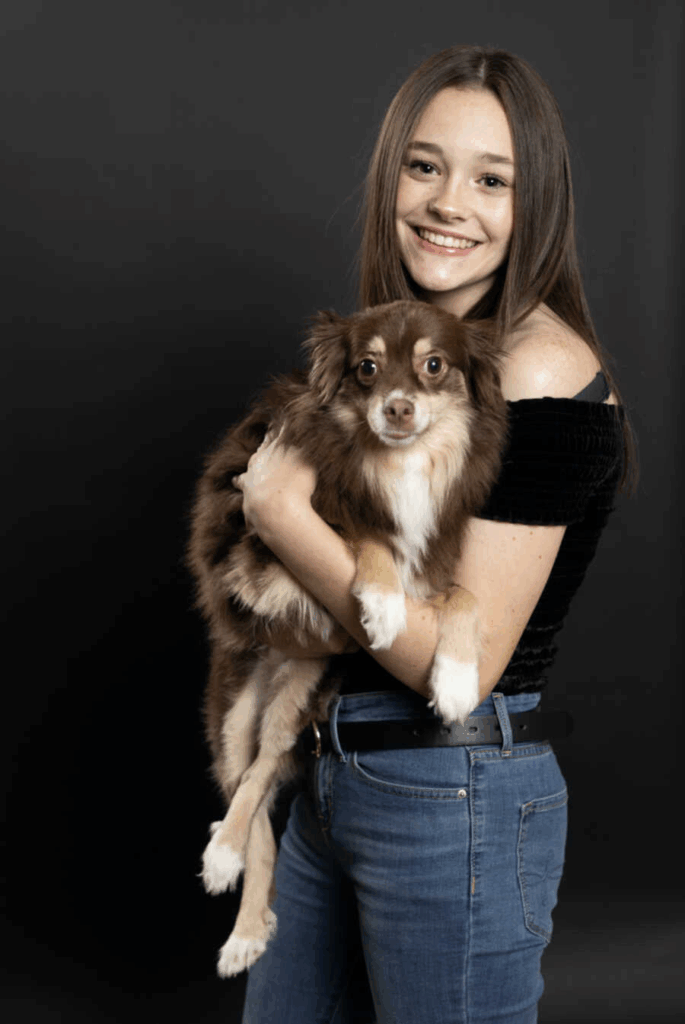
The next day, the caretaker messaged, saying she couldn’t ignore her feelings. She sent a voice note from Jazmine, who said she saw a sign that these two people were her parents now. It felt like the same truth had landed on all of them at once. For three months, they did weekend visits. In Christmas 2015, they asked if they could adopt her. She laughed at their tears. She still gets awkward around big feelings, but she said yes. A judge advised them to get foster-certified to ease placement.
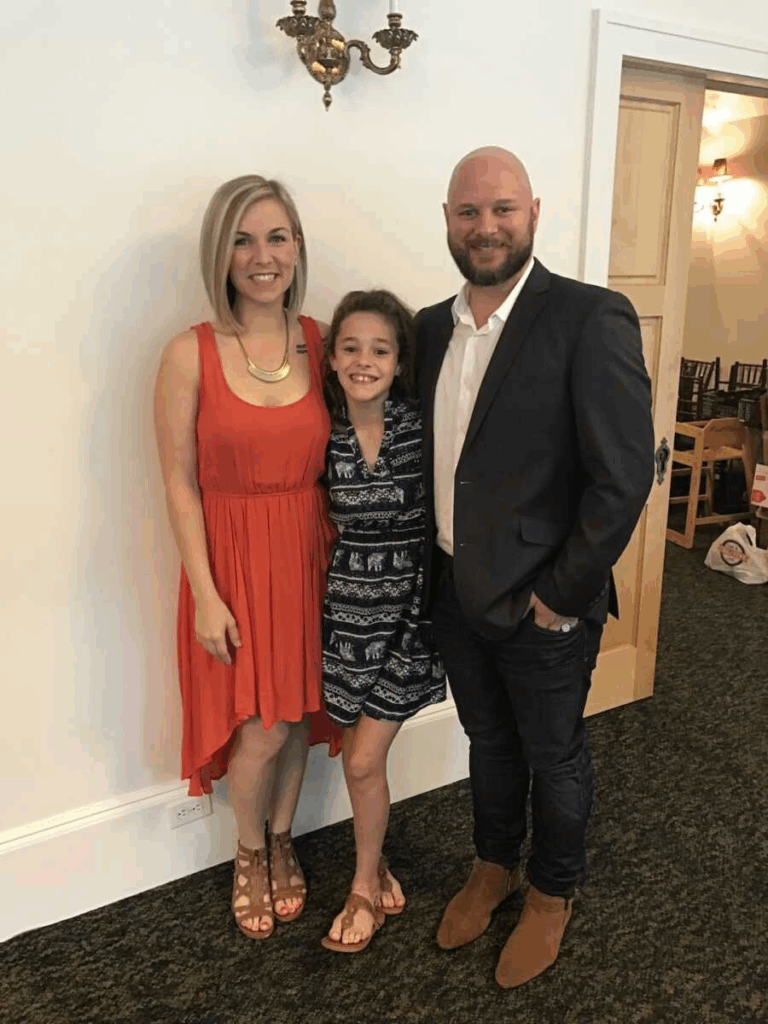
Their one-bedroom lease became a problem; breaking it cost them $1,900, which they didn’t have. An anonymous donor paid the fee and a new deposit, and friends filled in the rest—beds, clothes, the basics. Many nights, she sat on the floor of the empty second bedroom and prayed it would feel like safety.
They drove to Texas to ask the judge for placement. Emotions ran high. Brandon said, “Blood or not, my children are my children.” The judge, a woman of faith, told them she felt confirmation: placement granted until finalization. They brought Jazmine home to a two-bedroom rental, then they shopped for their first house. After closing, she looked at the brick exterior and the mailbox and said she’d always dreamed of living in a place like that, like a “real family.”

The final hearing was via Skype on November 12, 2016, National Adoption Day. The court was dressed as superheroes; a judge in a Batman costume granted the order. They cheered, wore matching shirts, grilled in the backyard, and gave their daughter their last name. The most challenging work came after. Every day felt like a transition. Trauma doesn’t keep a tidy schedule. PTSD flared. Sometimes, Jazmine would rage and not remember it later. They needed specialized help and didn’t know where to find it. Their church hadn’t walked many families through adoption.
Their friends were still in their early twenties without kids. Parents at school were much older with biological children; few understood what this looked like. Therapists cycled out; they kept searching for the next one. They lost friends, swapped late nights for braces appointments and uniform sales, and decided to become the option when the usual options failed.

Slowly, they built a net. They found a monthly group for adoptive families through Immerse Teen, which paired mentors and hosted events so kids could bond. They gained support from the court through a Family in Need of Services petition and met with a probation officer and judge on a schedule, reinforcing care and accountability. She started weekly therapy for her own secondary trauma. As a family, they showed up every week at Healing Waters Outreach Center to serve, so their world didn’t shrink to only their struggles. They let go of what a “close-knit family” should look like and did what they could with what they had.
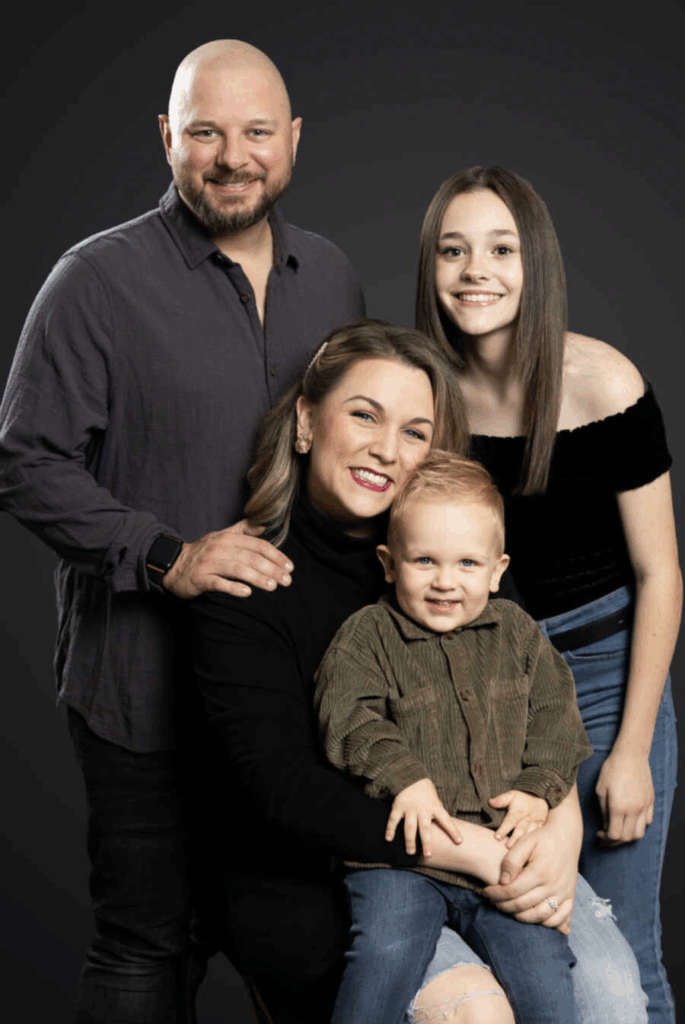
Jazmine is thriving in high school and runs track. She’s a loving big sister to their little boy, Liam. She talks about becoming a nurse, feeding the hungry, and getting her permit. She dances on TikTok, eats ramen and Takis, plays with her brother, takes long walks with her mom, dreams up clothing designs, and shops with her dad. Her parents are proud not because the story was easy, but because she is brave, kind, and very much her own person.
